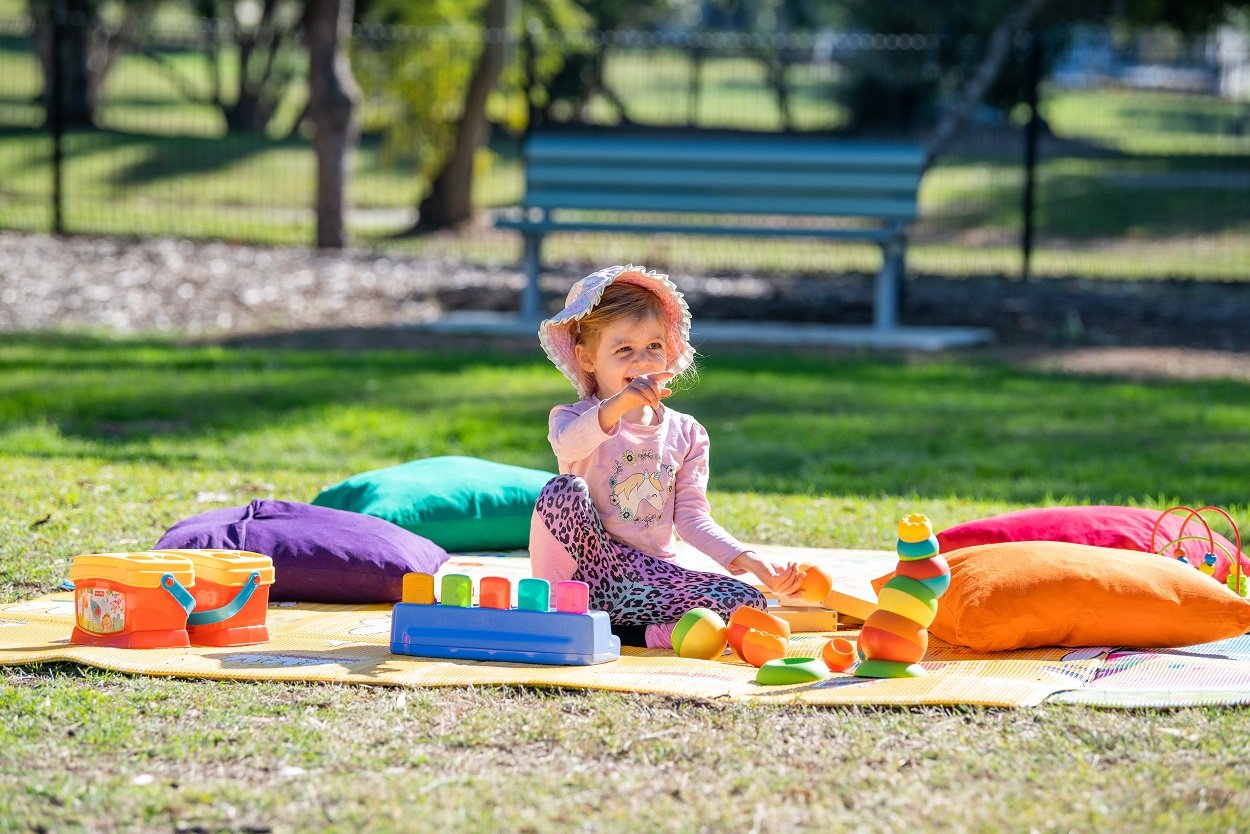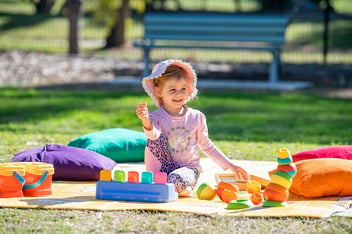
All about the HOW: Play as a tool for building STEAM skills
Blog > All about the HOW: Play as a tool for building STEAM skills

All about the HOW: Play as a tool for building STEAM skills
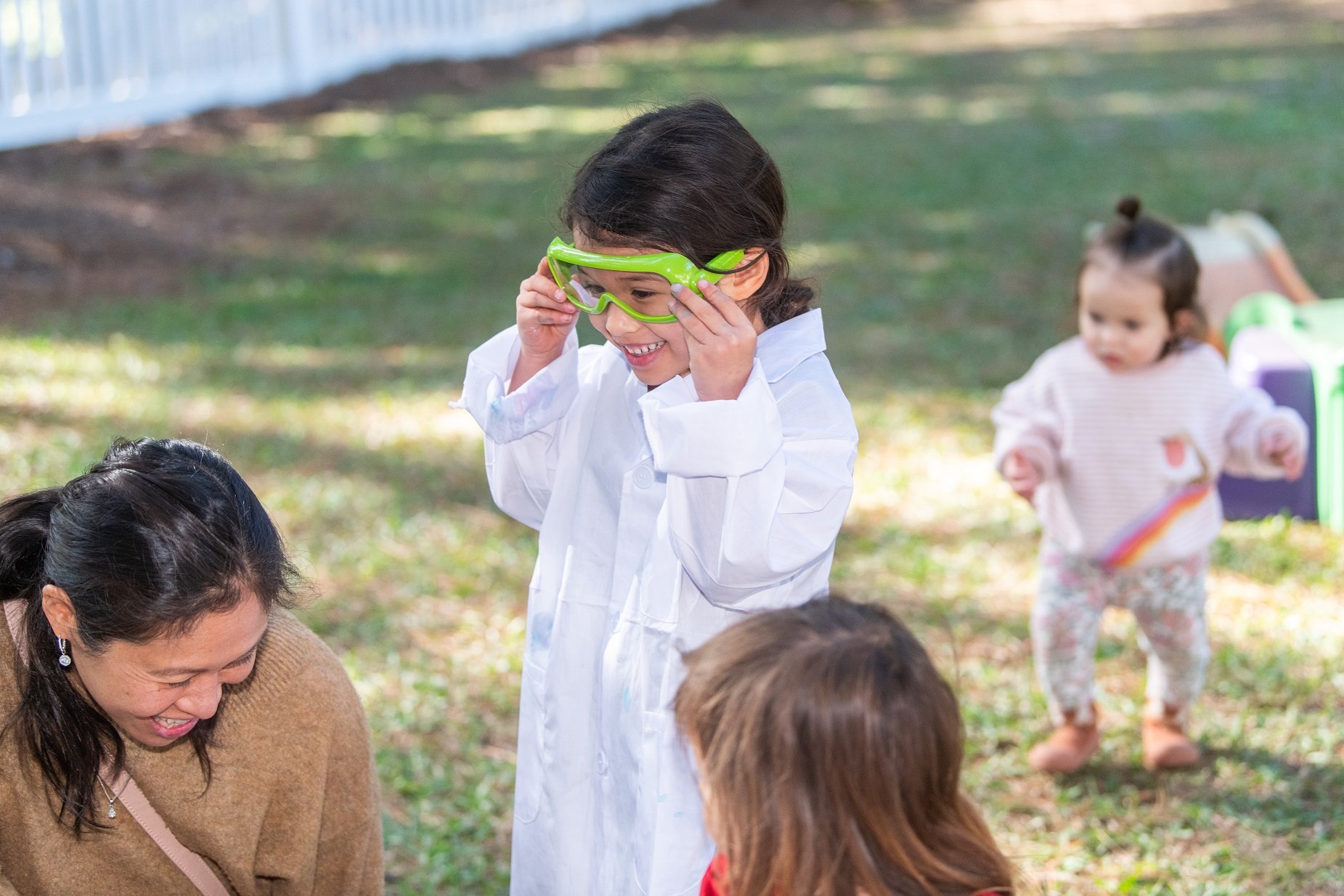
Exploring and investigating are children's natural endeavors. Encouraging children's curiosity, and providing the means and experience to follow it, helps support and nurture their budding skills in STEAM (Science, Technology, Engineering, and Mathematics).
We know how beneficial and important children's play is. It's their first learning pathway, and the means in which they build skills, muscles, relationships, knowledge, and certain dispositions. Enriching play experiences not only provide foundational skills children will need as they continue to grow and learn, but they also create positive memories of learning, and nurture children's curious, creative, and inquisitive natures.
For young children, developing STEAM skills means to practise innovating and problem solving, engage with the natural world, discover how things work, and explore a variety of different concepts. For children, HOW they engage with play and their everyday environment is just as important as the types of play they engage with. There are many ways children can explore the different aspects of STEAM.
Here are ways to promote the skills and knowledge of STEAM in play and the everyday.
-1.jpg?width=1840&height=1228&name=YARRABAH%20(85)-1.jpg)
Encouraging experimentation and inquiry
Encouraging the foundational skills that will support children in STEAM starts with play. Nurturing skills such as curiosity and creativity will support the inquisitive nature of children, as they come up with ideas and solve problems. It can be as natural as following children's ideas and curiosities. Encourage their ideas, and get excited with them. Ask children questions about their actions, their environment, what they see, and what they feel. Be open to the ways children can experience the environment.
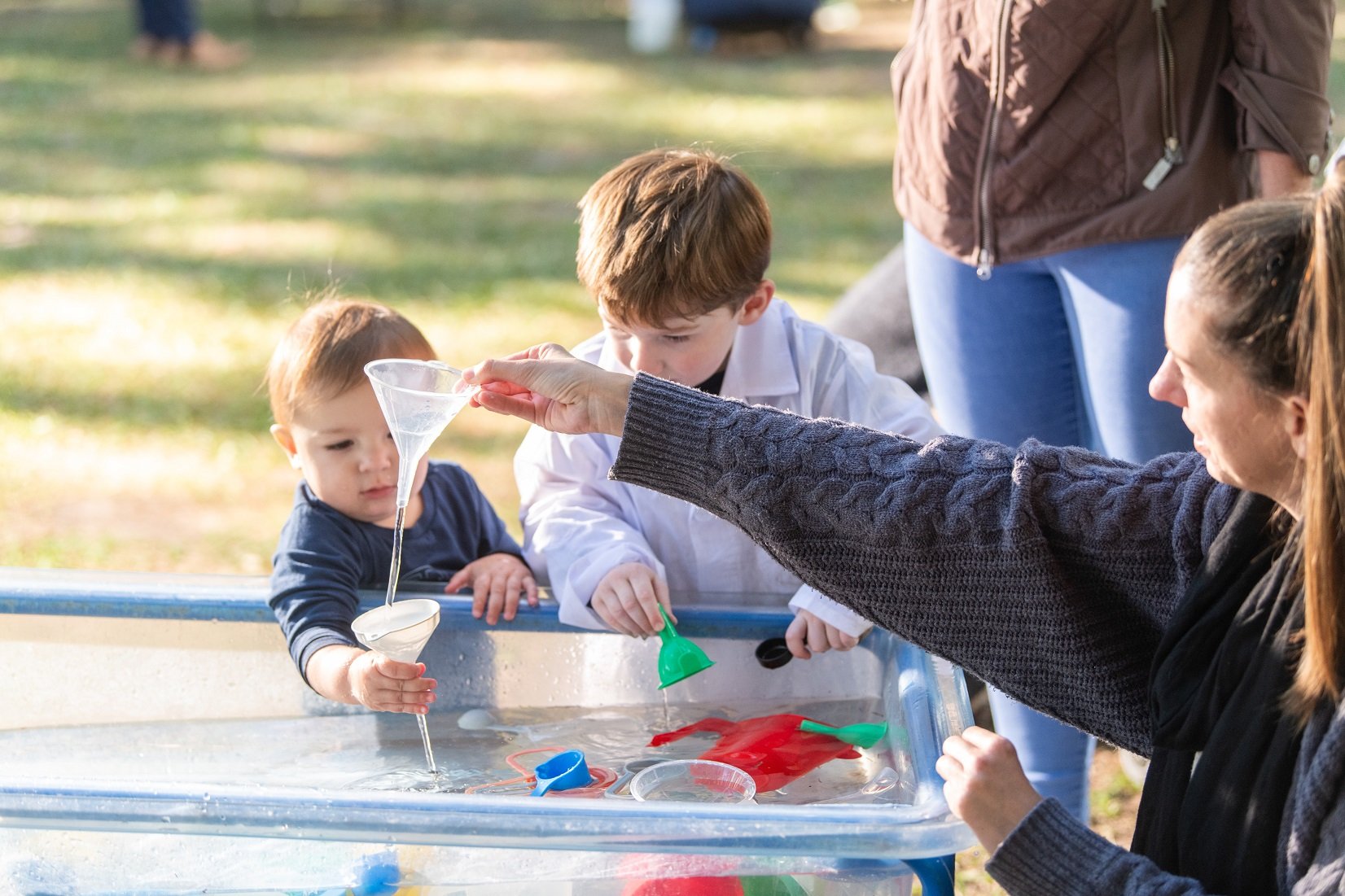
Provide opportunities for children to follow their own curiosity
Supporting children’s questions with activities, research, and discovery will support them in seeking answers to their questions. Create an environment in which questions are open for exploration. This can be through research, using tools available for answers i.e. tv, books, or providing opportunities for experiments that support finding the answer. Simple experiments can demonstrate new concepts for children, and encourage them to predict outcomes. This can be as simple as putting water in the freezer, or chocolate in the sun, and watching what happens.
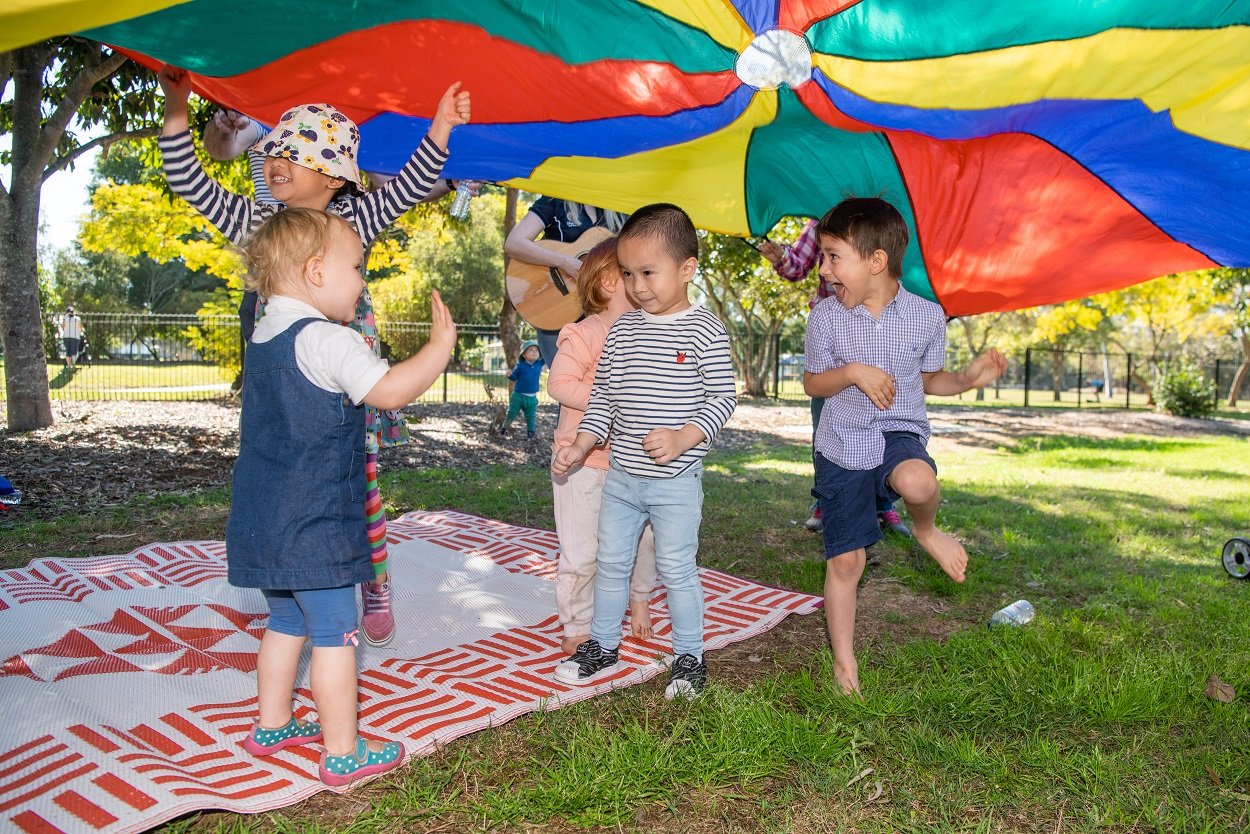
Create play experiences to promote innovation and problem solving
Activities that are project-based or give children either a goal or the means to create their own goal, provide space for them to innovate, and work through potential problems with creative solutions. This may include challenges, such as building according to set restrictions. This could look like creating a tall structure that can stand on its own using only paper and tape, or building a house with match sticks and blu tack. These kinds of activities let children explore materials, how they work and interact with each other, while also working in trial and error and adapting accordingly. Other kinds of activities can be more open-ended, such as creating a junk sculpture or junk mosaic, or posing a question, and allowing children to lead the way through play and inquisition.
-1.jpg?width=5799&height=3858&name=PLAY%20MATTERS%20BRISBANE%20MPM%20(5)-1.jpg)
Create follow-up activities to solve problems
Provide opportunities for children to explore and create solutions to problems, or innovate inventions. This can be as simple as drawing or talking about potential ideas, or using recycled materials to create things. It doesn’t have to be as specific as making an invention to solve a problem, children can have the freedom to create new and exciting things, even nonsense inventions that are just for fun.
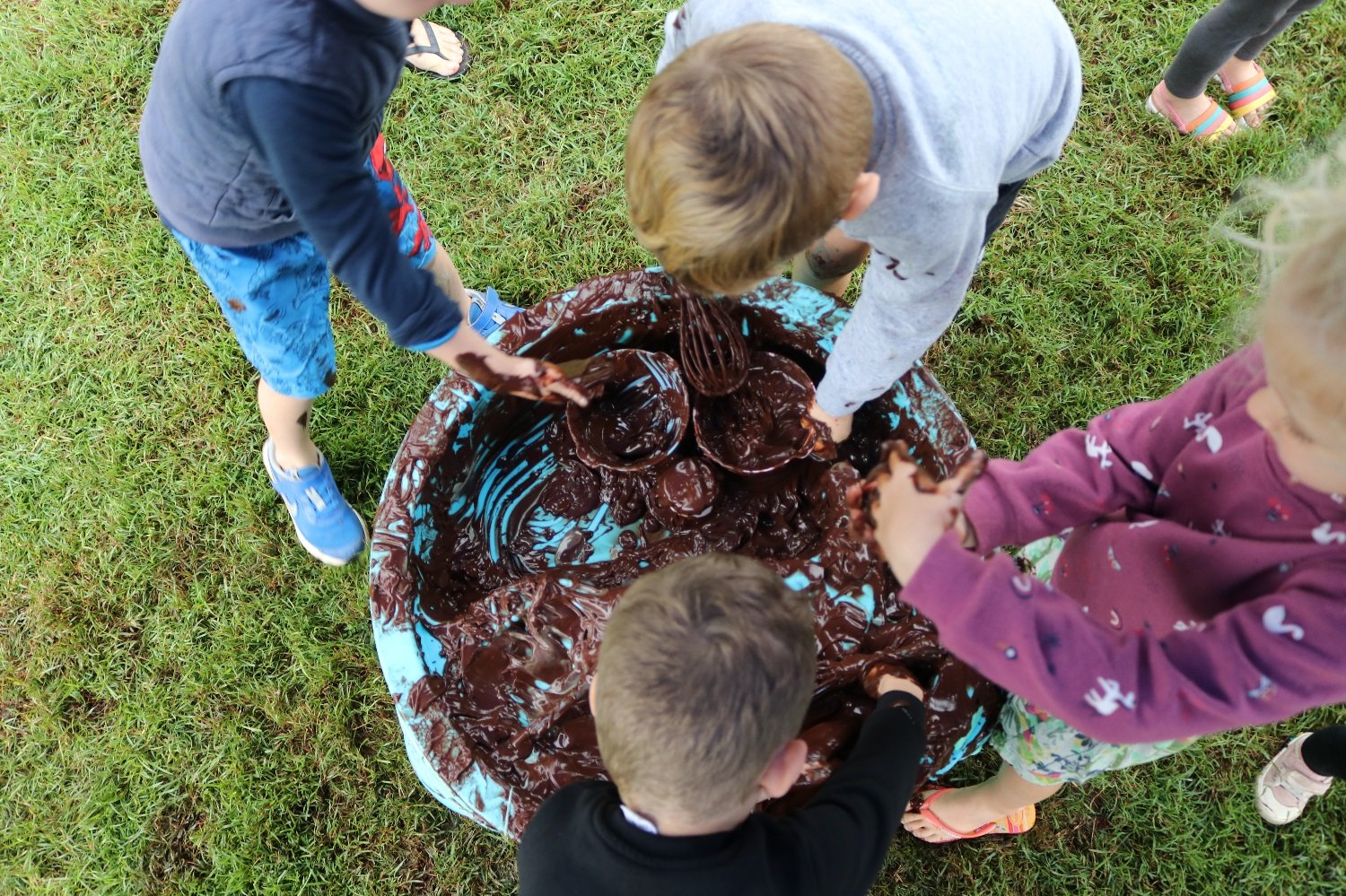
Support a STEAM mindset
Children being naturally curious means supporting a STEAM mindset has a lot more to do with nurturing their budding skills in the everyday than specific play experiences. Encourage children’s logical and critical thinking, as well as their sense of curiosity and discovery by asking questions, and encouraging questions. Ask children about their play, encouraging them to articulate their thought process. Children can also draw pictures or demonstrate what they are doing to encourage thinking about their steps and action.
-2.jpg?width=1472&height=983&name=YARRABAH%20(43)-2.jpg)
Encourage STEAM in the everyday and every play
STEAM knowledge and skills are developed through the learning and play that occurs in the everyday. There are many everyday activities that support children's scientific and mathematical thinking, whether it be following recipes, creating patterns, exploring the environment and nature, or experimenting with how their toys work. There are opportunities for curiosity, discovery, problem solving, critical and logical thinking everywhere. To support these skills, be aware of how it comes up in everyday life and find ways to bring it to attention. This may be as simple as pointing out observations or asking questions.
‘What happened when we mixed the flour and water?’
‘Tell me what it looks and feels like.’
‘How does the car move?’
‘What helps the plant grow?’
‘What happens when we put it in the freezer?’
‘How do we know this will work?’
‘What is going to happen next?’
‘What do you think will happen if we mix yellow with blue?’
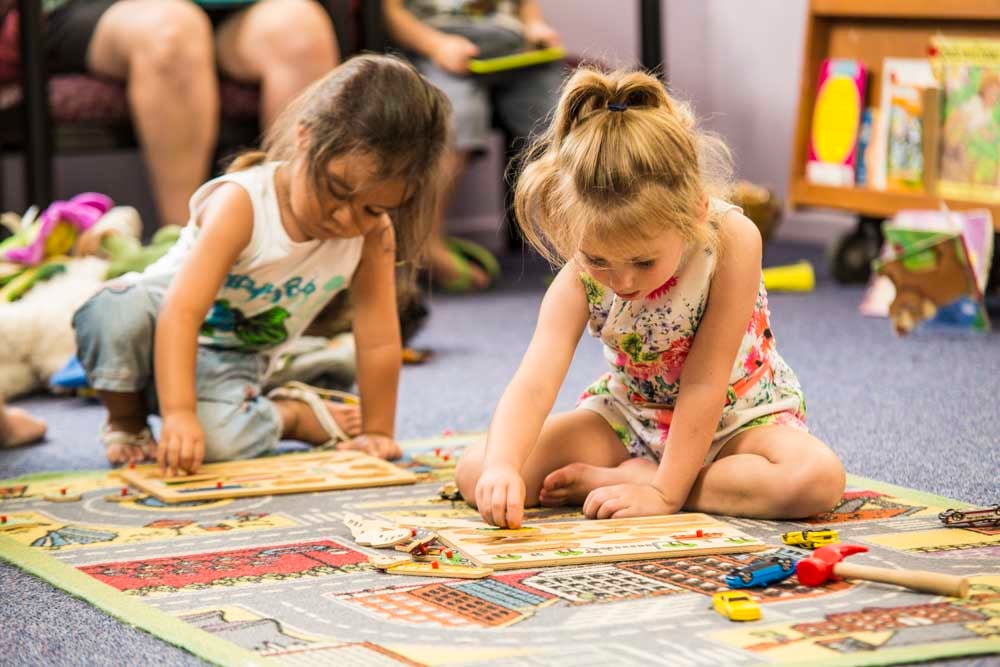
Provide activities to support STEAM skills
One of the many reasons play is so essential for children, is it helps them grow and development important skills. On top of that, it’s fun and natural for children, supporting a positive environment when exploring specific concepts or developing certain skills.
For play ideas to help foster STEAM skills, see the following activities:
-1.jpg?width=1652&height=1101&name=PMA%20REDLANDS%202023%20(245)-1.jpg)
Experiments
Natural World Discovery
Animal Tracks Aboriginal Art Symbols
Construction
How things work
Introducing Concepts
Reference List
(STEM in the Early Years) Learning Improvement https://dlb.sa.edu.au/stemeymoodle/pluginfile.php/127/mod_resource/content/4/STEM%20Play_Growing%20a%20generation%20of%20STEM%20capable%20learners_v9%20small%20file.pdf
Learning Through Play: The Importance of STEM In the Early Years, Only About Children, https://www.oac.edu.au/news-views/stem-in-the-early-years/
Science Matters: Bringing Science into Children's Play, Play Matters Australia, https://playmatters.org.au/blog/science-matters-bringing-science-into-childrens-play
Find a play experience near you:
Subscribe to our newsletter >
Related content:
Advertisement:
.jpg)

